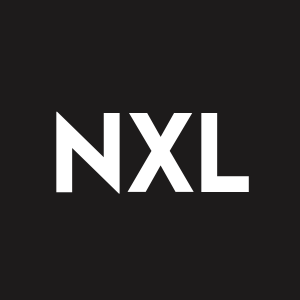Nexalin Technology Announces Planned Clinical Trial Utilizing Gen-3 Halo Headset in Partnership with UC San Diego & San Diego VA
Rhea-AI Summary
Nexalin Technology (NXL) has announced plans for a new clinical trial in collaboration with UC San Diego and San Diego VA. The study will evaluate the effectiveness of Nexalin's Gen-3 Halo headset in treating veterans with mild Traumatic Brain Injury (mTBI) using a virtual clinic model. This innovative approach allows patients to receive treatment at home, potentially expanding access to care.
The trial builds on positive results from a previous study using Nexalin's Gen-2 device, which showed significant improvements in MEG signals and pain reduction for mTBI patients. The Gen-3 Halo headset incorporates Nexalin's proprietary Deep Intracranial Frequency Stimulation (DIFS®) technology with an advanced 15 milliamp waveform.
The study will recruit two groups: one receiving treatment with the Nexalin Gen-3 Halo headset and another using a sham device for comparison. It aims to assess changes in brain activity and correlate them with improvements in post-concussion symptoms and neuropsychological test performance.
Positive
- Collaboration with prestigious institutions UC San Diego and San Diego VA for clinical trial
- Gen-3 Halo headset offers convenient at-home treatment through virtual clinic model
- Building on positive results from previous clinical trial treating veterans with mTBI
- Potential to expand access to care for veterans suffering from mTBI
- Alignment with Veterans Administration's objective of expanding therapeutic telehealth services
Negative
- Clinical trial results are not guaranteed and may not replicate previous positive outcomes
- Regulatory approval for the Gen-3 Halo headset is still pending
- Market adoption of virtual clinic model for neuromodulation treatments is uncertain
News Market Reaction 1 Alert
On the day this news was published, NXL gained 20.95%, reflecting a significant positive market reaction.
Data tracked by StockTitan Argus on the day of publication.
Gen-3 Halo Headset Designed to Offer Convenient At-Home Treatment Through Virtual Clinic Model
Study to Build on Positive Results from Previous Clinical Trial Treating Veterans with Mild Traumatic Brain Injury (mTBI)
HOUSTON, TX, Oct. 22, 2024 (GLOBE NEWSWIRE) -- Nexalin Technology, Inc. (Nasdaq: NXL; NXLIW) (the “Company” or “Nexalin”) today announced plans to commence a new clinical trial in collaboration with the University of California, San Diego (UCSD). Dr Ming Xiong Huang, the UCSD principal investigator, will utilize his affiliation with the San Diego VA to recruit some of the patients for the study who have been victims of Traumatic Brain Injury (TBI). This trial will focus on the effectiveness of Nexalin’s next-generation Gen-3 Halo headset, designed to be used in a virtual clinic model, allowing patients to receive treatment from the convenience and privacy of their own home thus overriding the inconvenience and stigma of visiting a psychiatry office or VA Hospital. This breakthrough approach aims to expand access to care for veterans suffering from mild Traumatic Brain Injury (mTBI) without the need for frequent hospital or clinic visits.
The Gen-3 Halo headset incorporates Nexalin’s proprietary Deep Intracranial Frequency Stimulation (DIFS®) technology, utilizing an advanced 15 milliamp waveform. Building on the success of a previous trial using the Gen-2 15 mAmp console device, the Gen-3 model offers enhanced convenience for in-home treatment while maintaining clinical precision. The new trial will seek to replicate the earlier results, which showed significant improvements in MEG (magnetoencephalography) signals and reductions in pain symptoms for mTBI patients.
The study titled, “MEG Study of the Transcranial Electrical Stimulation Treatment for Mild Traumatic Brain Injury using the Nexalin Halo Headset that Utilizes the Advanced 15 Milliamp Waveform,” will evaluate the effects of Nexalin’s Gen-3 Halo headset on brain activity and symptom relief in veterans, all while leveraging the ease and accessibility of virtual treatment.
Nexalin’s program is aligned with the Veterans Administration’s stated objective of expanding therapeutic telehealth services and expertise for veterans suffering with mTBI, as indicated in their 2025 Professional Judgement Budget. This budget also included over
Study Design and Objectives
This research will interpret MEG signals to assess the effectiveness of the Gen-3 Halo headset’s Deep Intracranial Frequency Stimulation (DIFS®) technology in individuals with mTBI. The virtual clinic model is a key component, enabling participants to receive treatment remotely, reducing the barriers to accessing care. The study aims to detect the location of injury and assess the mechanisms underlying neuroimaging changes associated with the treatment. It will measure changes in abnormal MEG slow-wave (1-4 Hz) and gamma-activity (30-80 Hz) generation and correlate them with improvements in post-concussion symptoms (PCS) and neuropsychological test performance.
The trial will recruit two groups of mTBI participants:
- Group 1 (minimum 20, maximum 40): Participants randomly assigned to receive treatment with the Nexalin Gen-3 Halo headset.
- Group 2 (minimum 10, maximum 20): Participants randomly assigned to a sham device for comparison.
The study is expected to provide important insights into the mechanisms of mTBI and demonstrate the therapeutic efficacy of Nexalin’s Gen-3 Halo headset, which offers the added benefit of virtual, at-home treatment.
Enhanced Access to Care with the Gen-3 Halo Headset
Nexalin’s Gen-3 Halo headset represents a significant advancement in neuromodulation technology, specifically designed for in-home use within a virtual clinic model. This innovative approach not only enhances patient convenience but also ensures consistent, targeted treatment with the advanced 15 mAmp waveform. The device is a key part of Nexalin’s broader strategy to expand access to treatment while maintaining clinical-grade precision in a home setting.
Building on Promising Results from Previous Trials
Last year, UCSD conducted a clinical trial using Nexalin’s Gen-2 console device to treat veterans with mTBI. The study showed notable improvements in brain activity and pain reduction among participants in the active treatment group compared to the sham group. The success of this trial laid the groundwork for further exploration of Nexalin’s technology, now adapted for at-home use with the Gen-3 Halo headset.
“We are once again partnering with UC San Diego to bring the added benefit of a virtual clinic model to our veterans,” said Mark White, CEO of Nexalin Technology. “Our Gen-3 Halo headset allows patients to receive treatment from the comfort of their homes, making care more accessible and less intrusive while maintaining the precision of our DIFS® technology. We believe this new trial could significantly enhance our understanding of mTBI and further validate the efficacy of our advanced neuromodulation device.”
About Nexalin Technology, Inc.
Nexalin designs and develops innovative neurostimulation products to uniquely help combat the ongoing global mental health epidemic. All of Nexalin’s products are believed to be non-invasive and undetectable to the human body and are developed to provide relief to those afflicted with mental health issues. Nexalin utilizes bioelectronic medical technology to treat mental health issues. Nexalin believes its neurostimulation medical devices can penetrate structures deep in the mid-brain that are associated with mental health disorders. Nexalin believes the deeper-penetrating waveform in its next-generation devices will generate enhanced patient response without any adverse side effects. The Nexalin Gen-2 15 milliamp neurostimulation device has been approved in China, Brazil, and Oman. Additional information about the Company is available at: https://nexalin.com/.
FORWARD-LOOKING STATEMENTS
This press release contains statements that constitute “forward-looking statements,” These statements relate to future events or Nexalin’s future financial performance. Any statements that refer to expectations, projections or other characterizations of future events or circumstances or that are not statements of historical fact (including without limitation statements to the effect that Nexalin or its management “believes”, “expects”, “anticipates”, “plans”, “intends” and similar expressions) should be considered forward looking statements that involve risks and uncertainties which could cause actual events or Nexalin’s actual results to differ materially from those indicated by the forward-looking statements. Forward-looking statements are subject to numerous conditions, many of which are beyond the control of the Company, including those set forth in the Risk Factors section of the Company's Report on Form 10-K for the year ended December 31, 2023 and other filings as filed with the Securities and Exchange Commission. Copies of such filings are available on the SEC’s website, www.sec.gov. Such forward-looking statements are made as of the date hereof and may become outdated over time. Such forward-looking statements are made as of the date hereof and may become outdated over time. The Company undertakes no obligation to update these statements for revisions or changes after the date of this release, except as required by law.
Contact:
Crescendo Communications, LLC
Tel: (212) 671-1020
Email: NXL@crescendo-ir.com








